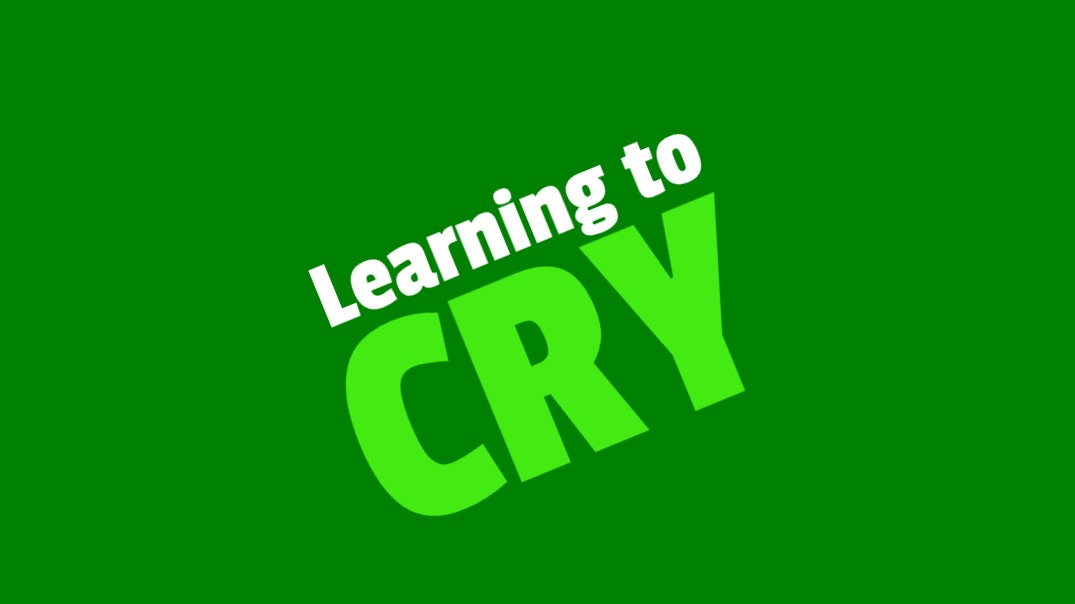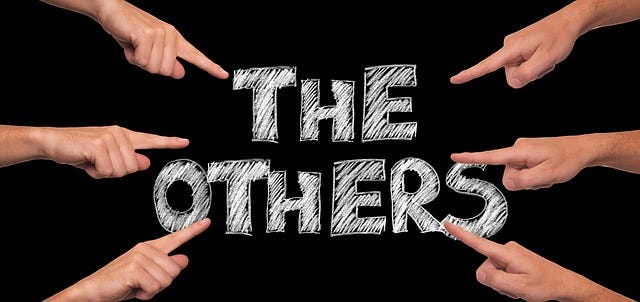Click the player above to listen to the podcast or read the transcript below.
Episode 58 “Learning to Cry”
My brother arrived in this world one year, eight months, and twenty days before I came along.
When it was my turn to join the family, it meant that for the rest of my life I would be … a little brother.
Now that may not mean much to you but it was an important part of my upbringing.
Big brothers were obviously bigger but they were also stronger, quicker, smarter … well, the list could go on.
The fact is, those of us who were little brothers had to learn certain survival skills.
Early on I learned that one of the most powerful skills I had was the ability to cry on demand.
If my brother and I were playing in the house and knocked something over, when an adult came into the room to see what happened, all I had to do was cry and point at my brother.
It didn’t matter if I was the one who knocked the item over.
If I cried and pointed, he got into trouble … and I didn’t.
Trust me, I got very good at crying.
Yep, it was an effective tool.
Brother, if you’re listening to this podcast, I apologize for using that skill. Remember, I was just a little kid.
It was childish, self-centered, and wrong.
Fortunately, it was a skill that I outgrew. I learned that I was responsible for my actions.
But I’ve noticed that many never outgrew that “crying” skill and continued to use what some people call “crocodile tears.”
The term "crocodile tears" refers to a false display of emotion or sympathy, often done for personal gain. The phrase comes from an ancient belief that crocodiles would weep while devouring their prey, although this has been scientifically debunked as a myth. In modern usage, "crocodile tears" are used to describe insincere or manipulative displays of emotions.
Childish Responses
That’s why it’s sad to see how our culture has chosen to encourage a childish response as a normal reaction to situations and now encourages young men and young women and even old men and old women to feel victimized and to embrace the “skill” of crying.
They don’t like the term “crying” so they call it “victimhood” and tie it in with all kinds of “isms.”
But to me it seems awfully similar to the crying skill I developed when I was a very young little brother.
I learned very early in life that blaming others for what happened to me was not a great way to live.
Let me give you an example.
I’ve shared in the past that I wasn’t the most skilled math student. In high school, I took a class called Algebra 2. I had great hopes when I began that course, but … let’s just say I didn’t do very well.
Now had I still practiced my childhood skill of crying, I could have blamed the teacher, the school, the curriculum, the textbook, or any number of things for my poor test scores and less than stellar grades.
But I had outgrown that childish approach and figured the problem was most likely —me. I wasn’t that good at math and I wasn’t willing to spend the time trying to become good.
It was my fault.
Had I only been born a few … okay, maybe more than a few … decades later, I would have been able to “cry” about math being racist.
I know. I know. I’m white so the racist card probably wouldn’t work.
But I could have generated some tears or even anger and pointed to something that was politically incorrect and my math difficulties would no longer have been my problem.
They would be laid on whomever or whatever I pointed at.
Victims are Glorified
Today we are intentionally teaching people to be victims. Our schools and colleges and businesses even have staff whose job is to turn people into self-perceived victims.
And they’ve been pretty good at their job.
But it comes at a terrible price to those who believe what these “specialists” have taught them.
People who accept victimhood develop a mindset where they see themselves as helpless and powerless, and they seek out situations where they can feel validated in that belief, whether it’s online, or in seminars, or in groups.
Some victims even go out of their way to create drama or conflict.
Some perceive innocent actions by others as a personal attack.
It’s very sad to watch.
We even have courses and seminars that teach people to feel persecuted because of “microagressions.”
This victim mentality can be very destructive, both to the individual and to those around them. It can prevent the individual from taking responsibility for their own actions and it can lead to a sense of entitlement and resentment towards others.
Those aren’t good human characteristics.
Get out of the pit
If you find yourself trapped in a victim mentality, you don’t have to wallow in that pit.
When bad things happen to you … not if bad things happen to you, but when bad things happen to you … step out of the victim role.
Don’t look around for someone to blame.
Instead, take responsibility for your actions and choose to respond in a positive and constructive way.
The Bible says …
“Do not be overcome by evil, but overcome evil with good.”
Romans 12:21 (ESV)
Overcome evil with good.
Even if you suffer real persecution — not microaggressions — there is a way that God wants you to respond. And it isn’t crying or pointing at someone else or wallowing in victimhood.
Jesus says …
“But I say to you, Love your enemies and pray for those who persecute you”
Matthew 5:44 (ESV)
Ask the Lord to give you wisdom and direction and follow what He shows you to do.
When you make mistakes — and you will make mistakes — ask the Lord to forgive you and then get back on track living life as a grown up.
Whatever you do, don’t go back to living like I did when I was a childish little brother.
Before I go I’d like to share a blessing with you from the Old Testament.
“May the Lord bless and protect you; may the Lord’s face radiate with joy because of you; may he be gracious to you, show you his favor, and give you his peace.”
Numbers 6:24-26 (The Living Bible)
Until next time … be the reason someone smiles today!













